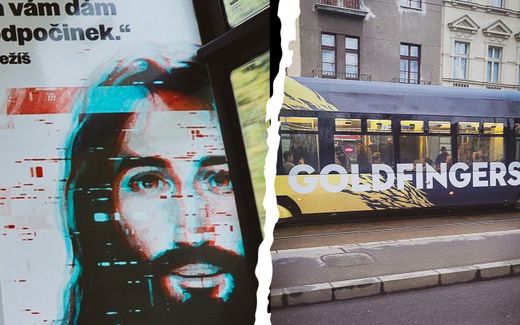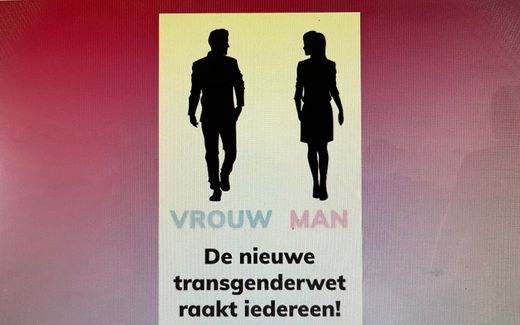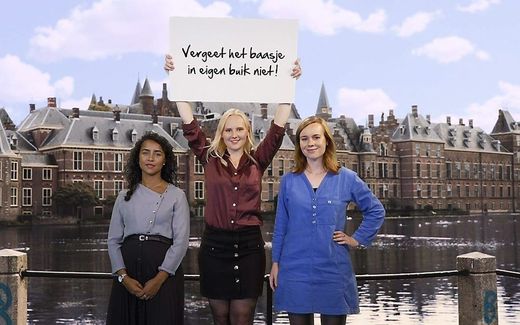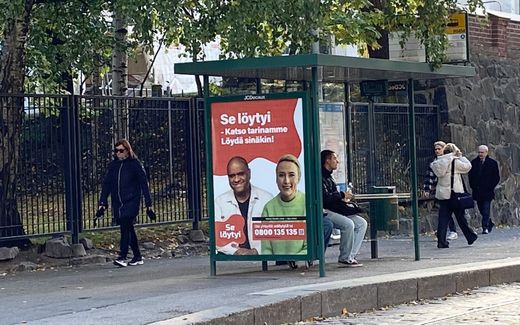Christian advertising receives criticism but has not yet been forbidden
06-02-2024
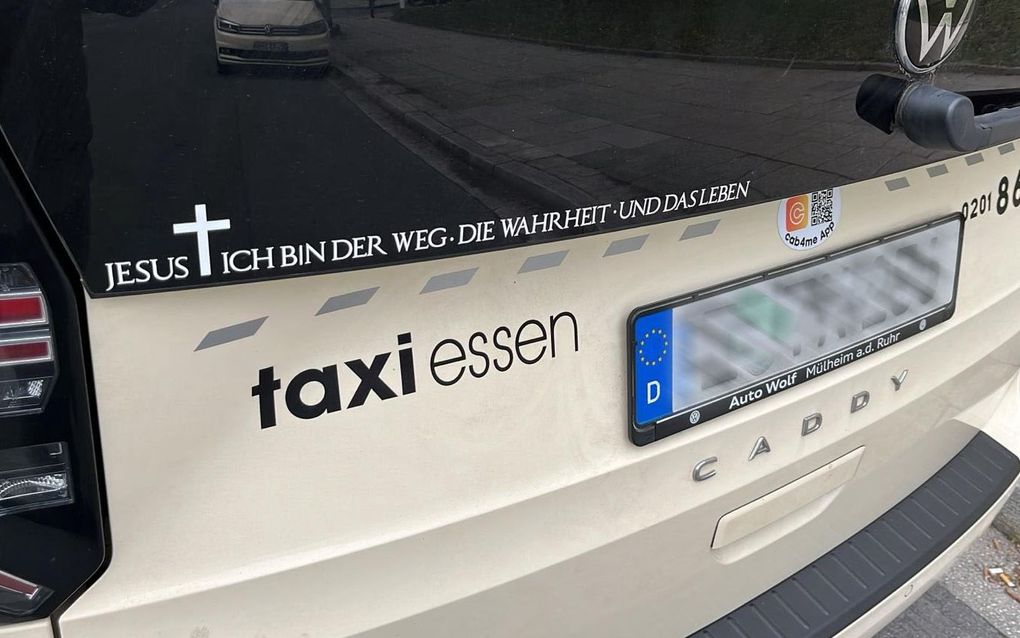
Allowed or not? In the German city of Essen, a taxi rides with a Gospel witness sticker on the back. Photo Jalil Mashali
Criticism is not strange in response to Gospel adverts or pro-life billboards. Protests against it are not uncommon. But what is the legal state of affairs?
Jalil Mashali keeps an eye on his letterbox for a call from the City of Essen. The German city council might fine him 1,000 Euros for having a witness sticker on his taxi. Everybody behind him at the traffic lights reads Jesus’s words: I am the way, the truth and the life.
The City of Essen claims that “improper advertising” is not allowed on a car that drives with “Taxi Essen”. But Mashali –a converted Muslim born in Iran– says he has no advertisement on his car since it is not commercial or profitable. It is just an expression of his conviction. As long as there is no final decision, the people in Essen will see the sticker on his taxi.
Mashali’s case is just one of many. Some cases are about pro-life advertising. In other campaigns, Christians are directly testifying about the Gospel of Jesus Christ.
Hereby here is an overview of six examples of Christian campaigns, from new to old:
Prague 2023
“I am the door. Jesus” was the message on the tram in Prague, the Czech capital, last year. The slogans were part of an Evangelical initiative that used the advertising space on the trams.
During the campaign, there was protest from the public. The deputy mayor of the capital pleaded for changing the advertising rules. “Is it okay for a tram to function as a recruitment campaign for religious organisation?” he asked on X.
The Prague Public Transport Company (DPP) said it had acted according to the rules. And so far, the story ended there.
The Netherlands 2022
The Dutch platform Gendertwijfel (gender doubt) had started a poster campaign against the gender transition bill. This led to severe debates in the public arena and some city councils. Critical voices said this was transphobic and should be forbidden.
The platform also created a radio commercial. The official advertising code committee (RCC) received a complaint about that. The tone would be “mocking” and “dismissive”.
The advertising code committee decided that the radio spot might sound dismissive but that the freedom of expression also applies to disturbing or even offensive messages. This decision was confirmed in an appeal case.
One year earlier, the RCC decided that pro-life commercials were within the boundaries of the law. Those commercials against abortion broadcasted during the Week of Life had provoked no less than 960 complaints.
Finland 2022
Christians in Finland organised a massive Gospel media campaign. People who had come to faith figured for thirty days in a poster and flyer campaign with the slogan “I found...” followed by a personal experience.
According to coordinator Ari Talja from IRR-TV Media Ministries, this was his country’s largest-ever mission campaign. “With the billboards, we reached everybody on the street. By mail, we reached almost all households in the country”, Talja says.
Combined with the radio and TV spots, Talja thinks that all Finns must have been aware of this testimony. “We know that people have come to faith through this.”
Most of the response was positive. “The 400 churches that worked together in this campaign are still busy with speaking engagements with the people in the campaign. This project started a process, and that is what we wanted.”
However, there was criticism, admits Talja. “That came from two directions. First, the official Luther church thought our campaign communicated an outdated view of the gospel. And some atheists replied by saying this campaign was completely unnecessary.” The criticism did not lead to any formal complaint.
Slovenia 2021
The pro-life group Zavod ŽIV!M started an awareness campaign around the unborn child. The organisation showed pictures of a father and mother with a child with the slogan “We love life”, “You are not alone”, and “I mourn my child”. Quite soon after the campaign’s launch on public transport buses, this action was criticised as being too confrontational and intolerant.
The state-owned bus company took the adverts down after just over a week. Zavod ŽIV!M complained successfully at the equality committee, which decided that the bus company had discriminated against the NGO.

The court, however, criticised the equality body and asked it to re-examine the decision. Zavod ŽIV!M appealed against this decision since it breached the “freedom of expression”, it said.
In a decision in December 2021, the administrative court said the NGO had not been discriminated against.
It took until July 2022 that the Slovenian equality body decided that the pro-life NGO had the right to advertise the campaign. Both the bus company and courts had discriminated against the right of Zavod ŽIV!M to express their view on unborn life.
Greece 2020
An anti-abortion campaign in the metro in Athens in 2020 triggered a strong reaction. On social media, people were saying: “Welcome in history”, “Welcome in the European Iran”, and: “Instead of going forward, we go backwards.” The government forced the transportation company to remove the posters immediately.

The posters were sponsored by the “Movement in favour of life”, Euractiv wrote. In the middle of it was a picture of an unborn foetus with the slogan “Choose life”.
After much protest, the minister of Transport asked the transport company STASY to remove the posters since they were “against an absolutely guaranteed and indisputable right of women”.
Summary
In short, there are six cases of Christian campaigning against which protest was heard. Three of the six have an evangelisation message (Czechia, Germany, Finland). The others have a pro-life character (The Netherlands, Slovenia, Greece).
In the cases that have come before a court, the final decision was in favour of the Christian message. The Greek case is odd in this context since the government decided to block the campaign, but no legal action followed.
ADF
Ludwig Brühl, Communications Officer with ADF International, it is no surprise that Christians use the public space to promote their “message of hope”. ADF International deals fairly often with attempted censorship. “There cannot be censorship of a simply undesired message,” Brühl says.
In the Slovenian case, the state-owned bus company censored the pro-life message because they were deemed “intolerant”. The pro-life group is challenging the censorship with the support of ADF International. “Christians are called to boldly speak the truth in love. But when there’s unjustified censorship, we need to take action,” Brühl concludes.
Related Articles



